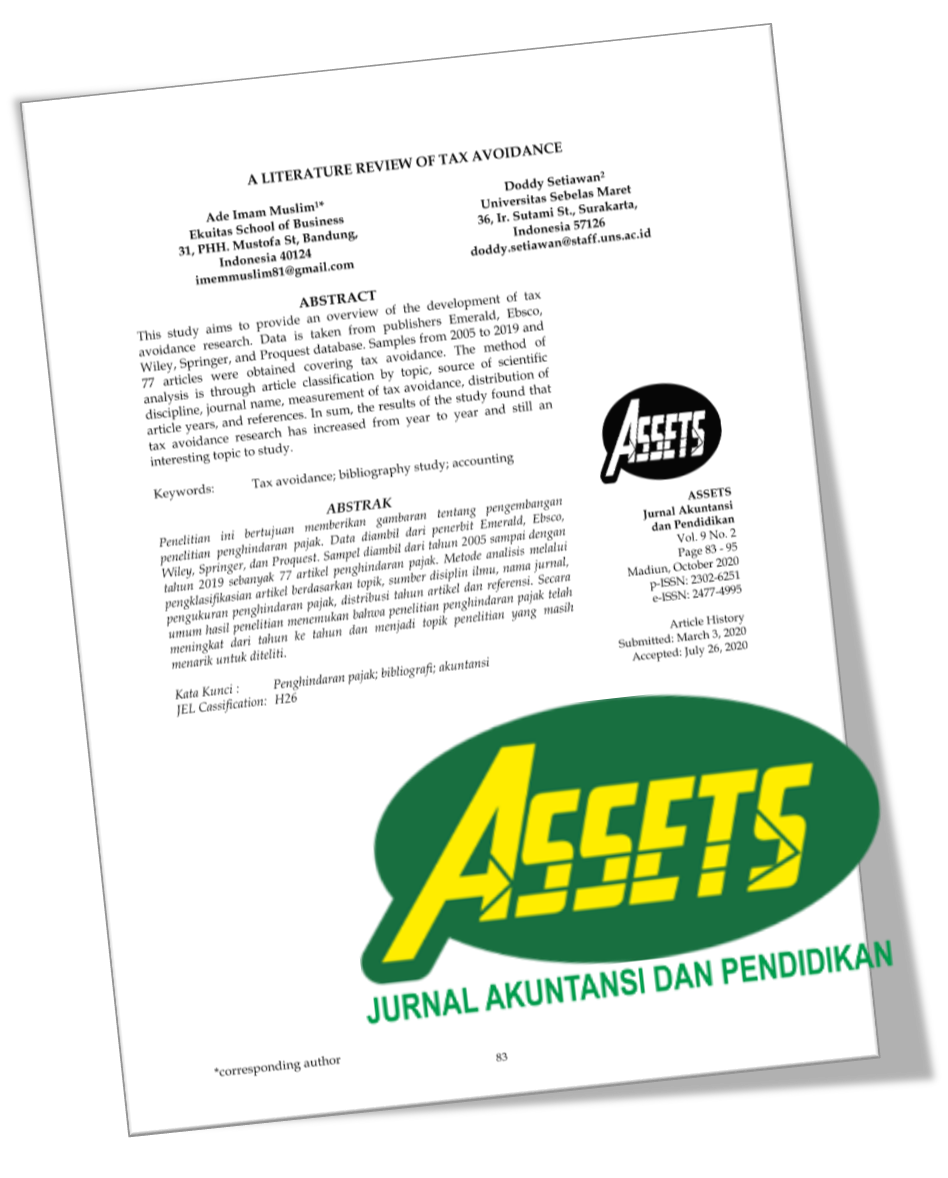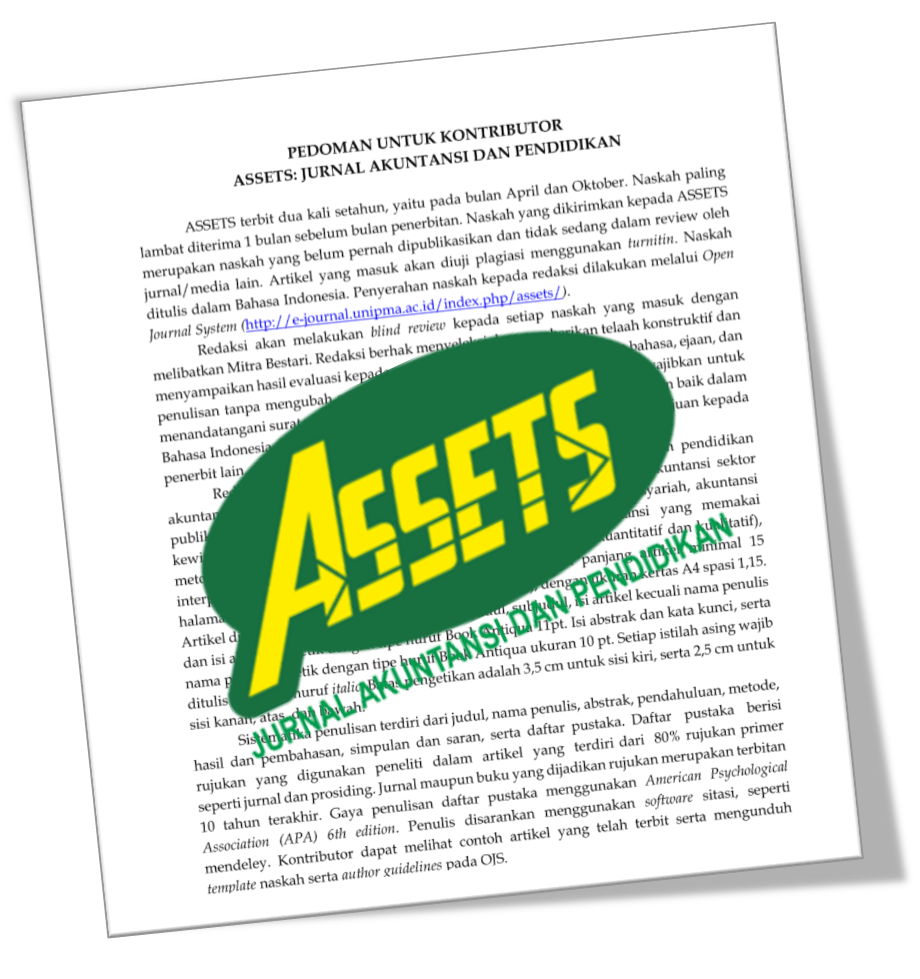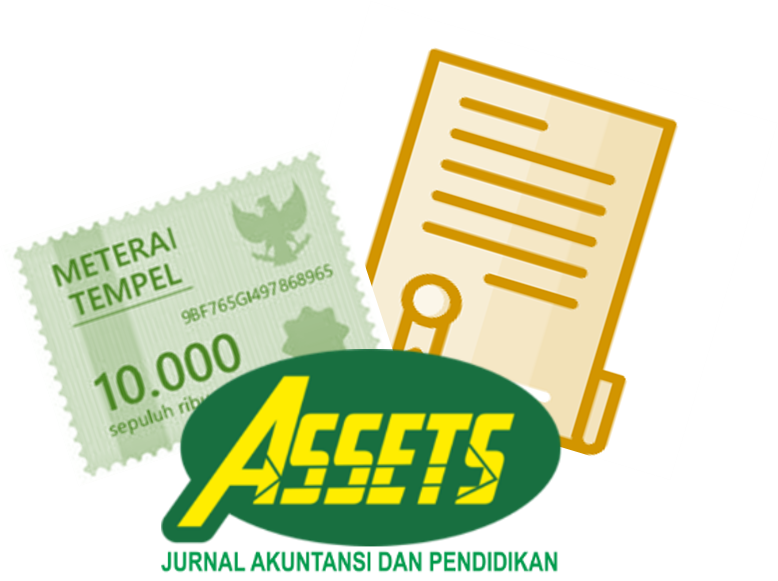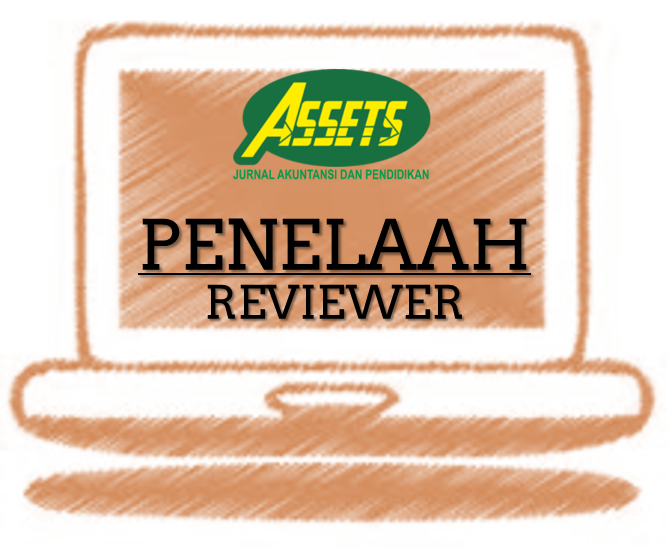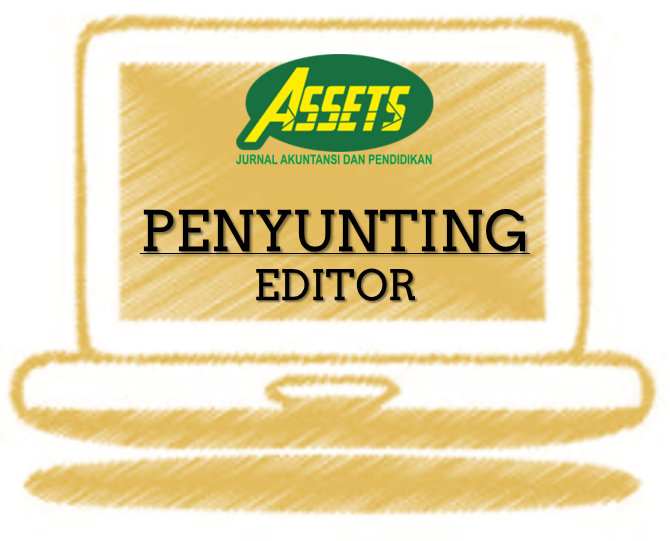The Needs and Readiness Analysis of Social Audit Implementation in Indonesia
DOI:
https://doi.org/10.25273/jap.v8i1.3399Keywords:
CSR implementation, CSR report, social audit, social audit implementation, the needs of social audit.Abstract
Penelitian ini bertujuan untuk menganalisa pentingnya audit sosial di Indonesia melalui studi literatur. Hasil riset mengindikasikan : 1) Indonesia sangat membutuhkan audit sosial untuk menjelaskan dan proses kontrol isu laporan CSR di perusahaan supaya kredibel dan konsisten. 2) Beberapa negara telah menjalankan audit sosial dan Indonesia bisa mengadopsi audit tersebut, namun disesuaikan dengan kondisi riil program audit yang ada di Indonesia. Kontribusi dari riset ini munculnya kesadaran para stakeholder lebih tinggi terhadap evaluasi dan monitoring pelaksanaan CSR melalui audit sosial, karena audit sosial sangat diperlukan bagi kita, pemerintah pada umumnya dan perusahaan secara khusus. Kemudian kita harus concern terhadap audit sosial ini.
Downloads
References
ACORAB. (2013). Public Hearing and Social Audit Implementation Guideline. ACORAB Nepal.
Ahmed, Asif. (2012). Social and Environmental Auditing; Some Basic Concept. Journal of The Institute of Chartered Accountants of Bangladesh.
Bello, Holtjana and Meka, Elvin S. (2015). Auditing of Corporate Social Responsibility (Case Study – Albanian Banking Sector). SSRN Electronic Journal.
Brown-Liburd, Helen L., and Zamora, Valentina L. (2014). The Role of Corporate Social Responsibility (CSR) Assurance in Investors’ Judgements When Managerial Pay is Explicity Tied to CSR Performance. Auditing: A Journal of Practice & Theory, Forthcoming.
Casey, Ryan J. and Grenier, Jonathan H. (2014). Understanding and Contributing to the Enigma of Corporate Social Responsibility (CSR): Assurance in the United States. Auditing: A Journal of Practice & Theory, Forthcoming.
Chen, Long, Srinidhi, Bin, Tsang, Albert. dan Yu, Wei. (2015). Audited Financial Reporting ad Voluntary Disclosure of Corporate Social Responsibility (CSR) Reports. Journal of SSRN.
Cooper, S. and Owen, D. (2007). Corporate Social Reporting and Stakeholder Accountability: The Missing Link. Accounting, Organizations and Society, 32, 649-667.
Donaldson, T. and Preston, L.E. (1995). The Stakeholder Theory of the Corporation: Concept, Evidence, and Implcations. Academy of Management Review, 20(n1) (pp. 337-359).
Du, Kai dan Wu, Shing-Jen. (2016). The Credibility of Corporate Social Responsibility Reports and The Role of Assurance: Evidence from Alternative Setting. SSRN Electronic Jounal.
Freeman, R. E. (2008). Ending the so-called ‘Friedman-Freeman’ debate,†in B. R. Agle, T. Donaldson. R. E. Freeman, M. C. Jensen, R. K. Mitchell, and D. J. Wood “Dialogue: Toward superior stakeholer theory. Business Ethics Quarterly, 18(2), 153-190, (pp. 162-166).
Godfrey, Jayne, dkk. (2010). Accounting Theory 7th Edition. Milton: John Willey & Sons.
GRI. (2013). External Assurance of Sustainability Reporting. Global Reporting Initiative.
Kay, Alan. (2017). Social Audit Gathering of Social Audit Network in 2017.
King, Brayden and McDonnel, Mary-Hunter. (2012). Good Firms, Good Targets: The Relationship between Corporate Social Responsibility, Reputation, and Activist Targeting. Corporate Social Responsibility in a Globalizing World: Toward Effective Global CSR Frameworks. Edited by Kiyoteru Tsuitsui and Alwyn Lim. (Forthcoming). SSRN Electronic Journal.
Koldovskyi, Artem. (2015). Corporate Responsibility Audit: Theoretical Aspects. Risk Governance & Control: Financial Market & Institutions. 5(3).
Kurihama, Ryuuichiro. (2007). Role for Auditing in Corporate Social Responsibility and Corporate Governance: Under New Corporate View. Corporate Ownership & Control. 5(1).
Lawrence, Anne T. and Weber, James. (2017). Business & Society: Stakeholders, Ethics, Public Policy 15th Edition. New York: McGraw-Hill.
Maignan, Isabelle, dan Ralston, David A. (2002). Corporate Social Responsibility in Europe and the U.S.: Insights from Business’ Self-Presentations. Journal of International Business Studies. 33(3), (pp. 497-514).
Peter Rogers , Kazi F. Jalal , John A. Boyd. (2007). An Introduction to Sustainable Development ,ISBN 976-1-84407-520-6.
Porter, M.E., and Kramer, M.R. (2006). Strategic and Society: The Link Between Competitive Advantage and Corporate Social Responsibility. Harvard Business Review, Dec., (pp. 1-15).
Preston, L. E., & O’bannon, D. P. (1997). The Corporate Social-Financial Performance Relationship. Business And Society, 36(4), (pp. 419-429).
Rahim. Mia M dan Vicario Victor. (2015). Social Audit: A Mess or Means in CSR Assesment). Springer International Publishing Switzerland 2015.
Sakina, Diajeng Ade. (2014). Narsisme Dalam Pelaporan Corporate Social Responsibility: Analisis Semiotik Atas Sustainability Reporting PT. Kaltim Prima Coal dan PT. Perkebunan Nusantara XIII (Persero). E-Jurnal Ekonomi Bisnis dan Akuntansi, (1)1.
Sayekti, Y. (2015). “Strategic Corporate Social Responsibility (CSR), Company Financial Performance, and Earning Response Coefficient: Empirical Evidence on Indonesian Listed Companiesâ€, Procedia - Social and Behavioral Science, 211.
Sayekti, Y., & Wondabio, L.S. (2007). Pengaruh CSR Disclosure terhadap Earning Response Coefficient: Suatu Studi Empiris Pada Perusahaan yang Terdaftar Di Bursa Efek Jakarta. Simposium Nasional Akuntansi X.
Sofia. (2010). Analysis of the Economic and Social Council on Social Audit Experience and Prospects for Development. Economic and Social Council Publications, Republic of Bulgaria, 34.
Suharto, Edi. (2008). Menggagas Standar Audit Program CSR. In Round Table Discussion AAI 2008. http://wartawarga.gunadarma.ac.id2010/02/menggagas-standar-audit-program-csr/ accesed on June, 2nd 2018.
Watts, Ross L., Zimmerman, Jerold L. (1986). Positive Accounting Theory. New Jersey: Prentice Hall, Inc.
Downloads
Published
Issue
Section
License
Perjanjian Lisensi dan Hak Cipta
Saat mengirimkan naskah ke jurnal, penulis menyatakan bahwa:
- Mereka diberi wewenang oleh rekan penulisnya untuk masuk ke dalam perjanjian ini.
- Karya yang dimaksud belum pernah diterbitkan secara resmi sebelumnya, kecuali dalam bentuk abstrak atau sebagai bagian dari kuliah, resensi, tesis, atau overlay jurnal yang diterbitkan.
- Karya yang dimaksud tidak sedang dipertimbangkan untuk diterbitkan di tempat lain,
- Publikasi karya yang dimaksud telah disetujui oleh semua penulis dan oleh otoritas yang bertanggung jawab - secara tahu sama tahu atau eksplisit - dari lembaga tempat pekerjaan itu dilakukan.
- Mereka mengamankan hak untuk mereproduksi materi apa pun yang telah diterbitkan atau dilindungi hak cipta di tempat lain.
- Mereka menyetujui lisensi dan perjanjian hak cipta berikut.
Hak Cipta
Penulis yang menerbitkan dengan ASSETS: Jurnal Akuntansi dan Pendidikan menyetujui persyaratan berikut:
- Penulis mempertahankan hak cipta dan memberikan jurnal hak publikasi pertama dengan karya yang secara bersamaan dilisensikan di bawah Lisensi Atribusi Creative Commons (CC BY-SA 4.0) yang memungkinkan orang lain untuk berbagi karya dengan pengakuan kepenulisan karya dan publikasi awal di jurnal ini.
- Penulis dapat masuk ke dalam pengaturan kontrak tambahan yang terpisah untuk distribusi non-eksklusif dari versi jurnal yang diterbitkan dari karya tersebut (misalnya, mempostingnya ke repositori institusional atau menerbitkannya dalam sebuah buku), dengan pengakuan publikasi awalnya di jurnal ini.
- Penulis diizinkan dan didorong untuk memposting karya mereka secara daring (misalnya di repositori institusional atau di situs web mereka) sebelum dan selama proses pengiriman, karena dapat menghasilkan pertukaran yang produktif, serta kutipan lebih awal dan lebih besar dari karya yang diterbitkan.
License and Copyright Agreement
In submitting the manuscript to the journal, the authors certify that:
- Their co-authors authorize them to enter into these arrangements.
- The work described has not been formally published before, except as an abstract or part of a published lecture, review, thesis, or overlay journal.
- That it is not under consideration for publication elsewhere,
- That its publication has been approved by all the author(s) and by the responsible authorities – tacitly or explicitly – of the institutes where the work has been carried out.
- They secure the right to reproduce any material already published or copyrighted elsewhere.
- They agree to the following license and copyright agreement.
Copyright
Authors who publish with ASSETS: Jurnal Akuntansi dan Pendidikan agree to the following terms:
- Authors retain copyright and grant the journal right of first publication with the work simultaneously licensed under a Creative Commons Attribution License (CC BY-SA 4.0) that allows others to share the work with an acknowledgment of the work's authorship and initial publication in this journal.
- Authors can enter into separate, additional contractual arrangements for the non-exclusive distribution of the journal's published version of the work (e.g., post it to an institutional repository or publish it in a book), with an acknowledgment of its initial publication in this journal.
- Authors are permitted and encouraged to post their work online (e.g., in institutional repositories or on their website) before and during submission, as it can lead to productive exchanges and earlier and more extraordinary citations of published work.

ASSETS: Jurnal Akuntansi dan Pendidikan is licensed under a Creative Commons Attribution-ShareAlike 4.0 International License.


